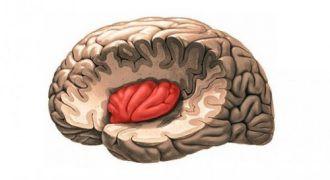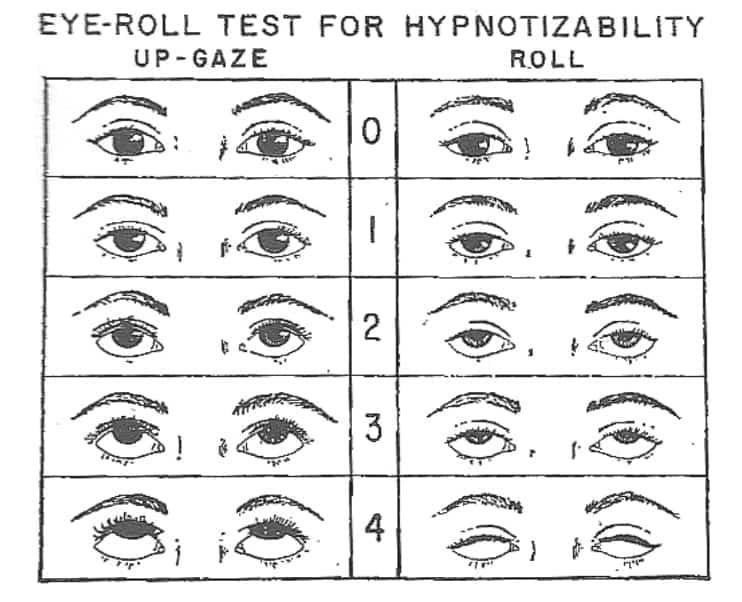Dr. David Spiegel: Using Hypnosis to Enhance Mental & Physical Health & Performance | Episode 60
Curated from: Huberman Lab
Ideas, facts & insights covering these topics:
10 ideas
·4.71K reads
24
Explore the World's Best Ideas
Join today and uncover 100+ curated journeys from 50+ topics. Unlock access to our mobile app with extensive features.
What Is Hypnosis?
Hypnosis: a state of highly focused attention, like looking through a camera lens.
Hypnosis involved a narrowing of context and loss of self
An experience is not considered hypnotic if the physical reaction is distracting or makes you think about something else.
Stage hypnosis: what we stereotypically think of someone performing with a pen or hypnotic tool trying to alter the state and actions of others for entertainment.
Clinical hypnosis: enhances control of mind and body by inducing cognitive flexibility and allowing you to shift set easily and change the way you evaluate events
51
737 reads
Neuroscience Of Hypnosis
Induction state = deep hypnosis
Three things characterize entry into a hypnotic state:
- turning down activity in the dorsal anterior cingulate cortex (dACC) responsible for cognition and motor control
- The Dorsal lateral prefrontal cortex (DLPC) has higher connectivity with the insula (part of the mind-body control system)
- Inverse functional connectivity between DLPC and posterior cingulate cortex (part of the default network, activity decreases in things like meditation)
Reducing the activity of dACC makes it less likely that you’ll be distracted and pulled out of whatever you’re in
53
591 reads
Clinical Applications Of Self-Hypnosis
Hypnosis is an effective problem-based treatment
Clinical applications: sleep, trauma, pain, phobia, stress, anxiety – and emerging research with cancer patients
Enhancing the mind-body connection is good for stress relief because it allows for the dissociation between somatic and psychological reactions
Self-hypnosis can be extremely helpful in falling back asleep when you wake up in the middle of the night
48
508 reads
Clinical Applications Of Self-Hypnosis
Hypnosis is an effective problem-based treatment
Clinical applications: sleep, trauma, pain, phobia, stress, anxiety – and emerging research with cancer patients
Enhancing the mind-body connection is good for stress relief because it allows for the dissociation between somatic and psychological reactions. Self-hypnosis can be extremely helpful in falling back asleep when you wake up in the middle of the night
Hypnosis allows you to confront phobias.
Self-hypnosis allows for a wider array of experiences that aren’t negative and might even be positive for treating phobias
50
408 reads
Starting Self-Hypnosis
It’s best to see a specialist who can be sure to address underlying issues requiring hypnosis, and not just the symptom. Self-hypnosis often requires just 1-2 visits or periodic sessions, not regularly
A physician or practitioner will assess how hypnotizable you are and take you through self-hypnosis, teaching you how to do it so you can practice on yourself later
Even a 1-minute refresher has been shown to be quite helpful. The goal is for self-hypnosis to become an acquired skill without needing to see a clinician
51
430 reads
Hypnotizability
Hypnotizability: capacity to have hypnotic experiences
The peak period of hypnotizability is childhood, around 6-10 years old. Dentists and phlebotomists can use hypnosis to shift focus. By the time you’re in your early 20s, hypnotizability becomes fixed.
Rates of hypnotizability: about 1/3 of adults are not hypnotizable, 2/3 are hypnotizable – with about 15% extremely hypnotizable.
Some people are not that hypnotizable: people are overly controlling and busier evaluating than experiencing
49
421 reads
Are you hypnotizable? Try the Spiegel eye-roll test
There’s a correlation between the capacity to keep eyes up and hypnotizability
Tilt your chin back so you’re looking up toward the ceiling
Direct eyes upward while open
Close your eyes, trying to keep the eyes up while closing the eyelids
If eyes roll back and you see the whites of your eyes, you’re highly hypnotizable; if eyes roll down and you see the iris (colored part of the eye) you’re less hypnotizable
56
509 reads
Eye Movement Desensitization And Processing (EMDR)
Eye movements have a lot to do with consciousness: stimulants make eyes big, opioids constrict pupils, rapid eye movement takes place during sleep
Eye movement desensitization and reprocessing (EMDR) EMDR: psychotherapy designed to alleviate the distress associated with traumatic memories by reducing activation of the amygdala and associated anxiety and reducing the amplitude of threat reflex
EMDR is most successful for single event trauma, like a car crash, robbery, etc. – not prolonged experiences like childhood abuse, divorce; it may be helpful but is ultimately an incomplete treatment.
51
385 reads
Overcoming Obstacles
The hallmark of treatment and getting over things is confronting it head-on.
Stress inoculation: we have to deal with stressful things in life to be better equipped the next time we face stress. You’ll become a stronger person if you face problems and stress.
We need to think of our brain and body signals as a tool to help us understand what’s going on in the world – and something that can be managed
Reflect on and categorize pain: is it something that is healing and leading us to get better? Or is it bad and making it worse?
Leverage pain and discomfort as an opportunity to take action.
51
338 reads
Grief
It can be necessary and useful to go into a grief state – on the flip side, you want an anchor to hold on to and come back to.
Grieving death, ask yourself: what have they left you?
Face a loss, live with the emotion that comes with it and embrace that the pain is because of how much they mean to you – reflect on what you gained from knowing the person.
53
387 reads
IDEAS CURATED BY
Erin Stevens's ideas are part of this journey:
Learn more about meditation with this collection
How to choose the right music for different tasks
The benefits of listening to music while working
How music affects productivity
Related collections
Similar ideas
3 ideas
How Meditation Works
Huberman Lab
10 ideas
Tools for Setting & Achieving Goals
Huberman Lab
13 ideas
Read & Learn
20x Faster
without
deepstash
with
deepstash
with
deepstash
Personalized microlearning
—
100+ Learning Journeys
—
Access to 200,000+ ideas
—
Access to the mobile app
—
Unlimited idea saving
—
—
Unlimited history
—
—
Unlimited listening to ideas
—
—
Downloading & offline access
—
—
Supercharge your mind with one idea per day
Enter your email and spend 1 minute every day to learn something new.
I agree to receive email updates



